- Home
- Heather Graham
Dust to Dust Page 2
Dust to Dust Read online
Page 2
But then I heard a whisper. As sure and certain as anything.
“You are Capricorn. And you will rise to the fight.”
I spun around again, looking for whoever had spoken.
“What fight?” I asked out loud. No one was there to hear me, but I still felt foolish. I was talking to myself in the shadows that came with the first tentacles of the dawn. The words I’d heard had seemed to be coming from inside my head, as if, from a great distance, a sweet voice with a subtle accent was speaking to me via some kind of ESP.
Swearing softly beneath my breath, I slipped my keycard into the lock. Screw this! No good deed goes unpunished, and this was apparently my punishment. I was going to sleep, and when I woke up, I was going to start drinking. Hell, I was in L.A. to party.
A night’s sleep, or several hours at least, and the strangeness would all fade, I told myself.
But—and thank God I didn’t know it at the time—that wasn’t to be.
Hell no.
It started that night, when I slept—or tried to.
The dream came instantly. I was walking along what I knew was an ancient path. And I knew I had been drawn there because there was something I had to find. At first there were trees alongside the rough stone I traversed. My mind fought against being there, but my feet kept moving. Ahead of me there were what looked like telephone poles rising into the air. In moments I realized they were not telephone poles, they were crosses, each one bearing a body. Miles and miles of those who had been crucified stretched before me.
The crosses disappeared, and the earth beneath me became hard-packed soil. The air bore a redolence that was strange and sad, like decaying moss, and I realized that I was surrounded by stacks of the dead. They were long decayed, many only bones, disarticulated skeletons, some held together by faded, gauzelike strips of shrouds, with bits of metal here and there—rings, brooches, weapons—glimmering in what seemed to be the yellow glow of lamplight coming from some place far ahead. As I paused, the head of a skeleton to my left suddenly began to turn of its own accord, as if controlled by the ghosts of muscles and tendons long gone. I stared in horror as the jaw began to work. A terrible rasping whisper hissed through the broken and toothless jaw. “The Oracle is calling.”
Broken bits of finger bone began to join together, and the skeletal hand at his side was suddenly whole and pointing toward the light. “Go,” the voice commanded in a tone of strange desperation.
I was torn by fear. I might have turned back then, because of that desperate need we have to survive, even in our dreams. But the wind that had come with his voice was behind me. I had no choice but to move forward. Suddenly it seemed that all the dead were awakening, urging me forward. Heads lifted, arms pointed, and a massive call went up. “Go. The Oracle is calling. Salvation can come only from those who are called. Hurry. Hurry!”
I shouldn’t have been so terrified; the skeletons were trying to help me. But they were terrifying, as they stared with their empty eye sockets and spoke in voices that were papery, coarse and part of the wind.
Finally I reached the place where the light began: a wall of burning sconces with a massive tomb in front of it. An ancient oil lamp sat upon that pagan sarcophagus, which had clearly seen use as an altar, and nearby, shrouded in a black hood and cloak, a presence stood. I started forward, and then I saw…
From another corridor in the maze of catacombs, someone else was arriving. As tall as I was, and as imaginary as I myself was in that place. He had no substance. He walked as I did, he came from my world. He, too, was headed for the light, and he stopped, startled, as he suddenly became aware of me.
He turned, and I saw that he was a bit older than I was.
As we stared at one another, the cloaked figure lifted a hand and began to speak, and I realized that it was a woman. “Come to me. Those who are not called must hasten those who are.” As her hand fell, I heard a horrendous commotion and turned to look back down the corridor. The skeletons were rising, rebuilding themselves. Then…
Perhaps the terror woke me. That thing in a dream where we won’t let ourselves fall, lest we die in real life. Whatever it was, I was awake, sitting up in my bed, sweat pouring down my chest. I was in my motel room in Los Angeles, and the multihued neon sign outside my window was blinking madly.
I threw off my covers, stood and turned on the bedside lamp. Not good enough. I needed the dirt and grit and cacophony of the city, the noises, the action, the good and the bad. I threw on some pants and stepped outside into the courtyard. And then I realized I was still smelling the hard-packed dirt and death from the catacombs of my dreams. I shook my head to dispel the cloying scent. The smell of grease from a nearby diner started to replace it, followed by a hint of night-blooming jasmine. Much better. I turned to go back in, and then I noticed my feet.
They were filthy. And not just with the normal dirt of a big city. This dirt was an odd color, a strange pasty gray.
As if…
As if I had walked through miles of catacombs.
Miles and miles of the dead.
1
“What on earth is that, Mel?” Maggie Canady asked, leaning over to stare at the cocktail napkin on which Melanie Regan had been doodling.
“What is what?” Melanie asked.
She hadn’t paid the least attention to what she had been doing, and now she stared down at the napkin. She had flipped it over, so there was no logo to deter the free movement of her pen or mar the pictures she created.
Pictures. Real pictures. Recognizable.
Detailed.
There were four of them, and they were so well situated on the napkin, she might have marked off the corners with a ruler.
The top left corner was very evidently a sketch of a fire, so detailed that the flames almost seemed to move. Even more hypnotic was the sketch on the opposite corner.
It was of a waterfall, forceful, filling the air with spray as it fell to the pool below. There was something wild and even violent about it.
The bottom right corner showed a fiercely blowing wind, sweeping away the cloud cover.
She hadn’t even known that the wind could actually be drawn. Not without showing something blowing in it. But what she had put on the paper was the wind. And like the fire and the waterfall, it seemed to have life, to be real and almost tangible.
The bottom left corner showed an earthquake, and it was amazingly realistic. It wasn’t a sketch of buildings toppling or a bridge crumbling. It simply showed the ground, but the ground split asunder. Once again, it was almost as if it were happening as she looked at the napkin. Something violent and almost mobile seemed to be captured on the fragile paper.
She set the pen down.
“I didn’t know you could draw like that,” Maggie marveled.
Melanie clenched her hands in her lap. “Neither did I,” she admitted.
Maggie looked at her as if she had just grown a third eye in the middle of her forehead. “Wow,” she said.
Melanie waved a hand in the air and forced what sounded like an easy laugh. “I don’t think it’s such a big deal. They say that we only use about a tenth of our mental capacity at any time. We were talking, and I guess I was distracted, so part of my subconscious mind kicked in or some such thing. Who knows? Anyway, I’m sure I couldn’t do it again if I tried.”
And she meant that. She couldn’t usually so much as draw a stick figure.
She grabbed the beer in front of her and took a long swallow. She realized that she was barely keeping her cool, and that, too, was strange. She had learned long ago how to hide her thoughts and emotions, to play it easy in any given situation.
After all, she’d been around. Los Angeles wasn’t actually home for her. She’d spent a lot of time touring Europe, hung out in New York City for a while and lived for many years in New Orleans, which was really home for her. It was where she had found a sense of herself, and where she had made so many good friends. They called themselves the Alliance—and even far
apart, they remained close, always ready to help one another out. Maggie was one of those friends, and she couldn’t believe she felt uneasy in front of Maggie, who knew everything there was to know about her. But she did feel ill at ease, and all because she could suddenly draw.
Maggie sat back, arched a brow and took a long sip of her own beer. “I would have thought, if you were magically going to become a great artist, you—being you—would have drawn Lassie.”
“Very funny,” Melanie said.
“Well, you are a fabulous dog trainer.”
“Because I know animals respond to positive reinforcement,” Melanie said.
“So do people,” Maggie said, and set a hand on Melanie’s. “Seriously…those are great. Don’t look so worried.”
“But it’s so…strange that I, of all people, could draw something so good,” Melanie said.
“I agree,” Maggie told her, and that was when Melanie realized her friend was as weirded-out as she was by the whole thing.
They both had their day jobs, but it sometimes seemed that the Alliance, which operated totally beneath the regular radar of humanity, was the most defining force in their lives, one that made them react to even seemingly innocuous events with immediate suspicion. They dealt with the curious, from the slightly uncommon to the absolutely bizarre, which made sense, most of the members being rather unusual themselves. Their titular head, Lucien DeVeau, lived in New Orleans, where it seemed they most often gathered, since New Orleans seemed to attract the peculiar and mysterious. Then again, Melanie reflected, Los Angeles, where she was now living, could be most unusual itself. Back home, most of her friends were in relationships—married, for the most part. Lucien had a wife he adored, Jade, who of course was part of the Alliance, too. For Melanie, it was like having a big family, but she hated being a third wheel, and it did sometimes feel that way when she was back home.
California had become her place. She was used to standing on her own here, at least on a day-to-day basis.
Tonight was supposed to have been just a nice evening out. Maggie had a houseful of children and a boutique that was thriving. Melanie’s life was much easier in one sense—no children—but she was extremely proud to be considered one of the finest trainers in the country now, and she traveled extensively to train show dogs, working dogs and just plain pet dogs. She had an affinity for all animals, not just dogs, and she had always seemed to have a special gift for working with them, from hamsters to horses. Training the unruly German shepherds of an A-list movie star had first brought her out here, and she had been determined to carve out a life for herself.
So far, it had been a fine life. And now and then she got really lucky and her friends came out to see her.
She had found her niche. She had a great job. She loved the animals she worked with, and they loved her.
In her own mind, at least, she didn’t do half so well with most human beings. She was lucky to have very good friends despite that, though she wasn’t quite certain she considered all of them to be human beings. Maggie, however, was definitely very human.
Maggie’s home had always been New Orleans, but at least four times a year she took a much-needed break and traveled out to L.A. to spend a few days with Melanie. Her husband, Sean, was a great guy, a police lieutenant working the French Quarter, and though he was very busy himself, he was also a great father. His day job was very important to the Alliance, but he enjoyed getting quality time to bond with his brood when Maggie headed west.
Sometimes a few of Melanie’s other friends joined them when they got together, but tonight it was just the two of them, and Melanie was glad of that.
If she hadn’t already felt completely unnerved by the drawings, her friend’s reaction would have alerted her that something weird was going on. Maggie was taking the drawings very seriously; Melanie could tell by the way her face had drawn taut and her eyes had darkened.
And Maggie always knew these things.
Maggie was a beautiful woman, with deep auburn hair and green eyes; she was down-to-earth and one of the most socially conscious people Melanie had ever met. She adored her own four children and especially loved five-year-olds. They were perfect people then, she had told Melanie once. Old enough to go potty, dress themselves and eat fairly neatly, but too young to have learned hatred or prejudice, and still willing to believe in the word of the adults around them.
“What about six-year-olds?” Melanie had asked her once.
“By that age they start questioning everything you say,” Maggie had warned her.
Dogs to Melanie were like five-year-olds to Maggie. They offered up unconditional love. Many were incredibly bright. Most wanted to learn.
Bad dogs, she believed, were like most bad children: created by those around them. But then, that was a personal opinion.
And she was very aware that she was thinking about dogs and children because she was so upset that she had suddenly become an artist.
“How curious,” Maggie said suddenly.
“Well, yes, we’ve established that,” Mel said.
Maggie flashed her a smile before growing somber once again. “Think about it. You drew a waterfall. Water. The wind. Blowing wind—or air. Fire. And what seems to be an earthquake. Earth, wind, fire and water.”
“Remember Earth, Wind and Fire? Great group,” Melanie said.
Maggie flashed her a concerned frown.
“Mel…” she began, then paused.
“What?”
“What the hell is that?” Maggie asked suddenly.
“What?” Melanie asked.
“Can’t you feel it?” Maggie asked.
Melanie looked up. They were seated by a gold-filigreed mirror, and she caught sight of her own reflection. She was surprised to see that she looked so wide-eyed, so lost. She wasn’t normally uncertain of anything.
It was the drawings, she knew.
She studied her own reflection: wide blue eyes, hair so blond that her friends teased her about looking angelic. Fair skin. She was tall—even sitting she still somehow looked tall—and that seemed important suddenly. She carried her five-eleven with assurance, and that usually outweighed any suggestion of fragility because of her china-doll coloring.
But at that moment…
There was something in her reflection.
Dread.
“Feel it?” Maggie repeated, and tapped a finger on the corner of the cocktail napkin where Mel had drawn an earthquake.
“It’s happening now,” Maggie said.
And then Melanie did feel it.
The earth was trembling.
It had started off subtly. Still, she should have felt it, but she hadn’t, not until Maggie brought it up.
But it was true. It was happening, slowly at first, barely there.
And then it increased.
Suddenly everyone in the restaurant began to feel it.
People started to talk all at once, panic rising in their voices.
“What the hell is that?” a gruff, heavy-set man demanded.
“Look, the glasses are all shaking!” a woman cried.
A rumbling sound started to rise over the softness of the dinner music playing in the background.
Dishes suddenly crashed to the floor.
“Earthquake!” someone shouted. “Get under a doorframe…. Move!”
Maggie and Melanie just stared at one another.
Because it was true. The rumbling had risen to the decibel level of a freight train rushing through the night. The chandeliers were shaking, the tinkling a strange counterpoint to the roar that was continuing to rise.
A statue near the doorway fell over with a crash.
A young woman let out a terrified scream and jumped to her feet, her chair crashing to the floor. The man with her dove beneath the table.
The woman, in a blind panic, went running toward the entrance.
“Oh, my God!” Melanie said, horrified. “I’ve got to stop her!”
Maggie caught her a
rm and tried to stop her.
“Get under the table,” Melanie told her, then repeated the warning at the top of her voice as she raced for the door and the young woman who had run right out into the danger of smashing glass and crashing cars.
Outside, it was mayhem. As was so often true with quakes, one side of the street, was a mess. Her side looked almost untouched. In the street itself, cars were crushed and piled everywhere, horns blaring. People were running blindly, shouting in panic. Melanie saw the woman who had raced from the restaurant. She was standing like a deer caught in headlights, right in the middle of the road. Melanie hurried after her just as a Volvo, trying to avoid the crashed car in front of it, nearly plowed into her.
Melanie grasped her by the arm and realized that she was in shock.
“Get back in the doorway…come on!”
She dragged the woman back toward the restaurant, where a busboy, standing in amazement by a support beam, reached for them just as a massive planter started to tumble from the terrace above them.
“Help her, please!” Melanie shouted, shoving the woman into the busboy’s arms, then turning to leave. He caught her arm, dark eyes concerned.
“Where are you going? Things are still falling. There could be aftershocks. Please, get back in here!” he shouted to Mel.
“I’m all right,” she told him. “I’m…uh, emergency personnel,” she lied. She should have felt bad. He was rising to the fore in the midst of disaster, concerned about others.
But she couldn’t stay.
And she couldn’t explain what was tearing at her.
She had drawn the earthquake. And then it had happened.
She felt responsible.
She told herself that earthquakes were common in California. This wasn’t an anomaly.
But this time…
She couldn’t help it. She felt responsible.
Alarms were going off everywhere. Glass was shattering, sirens blaring.
Outside the restaurant, Santa Monica Boulevard, with its beautiful shops and quaint air of sophistication, was a disaster. The earth was still rumbling. And then it stopped. Everyone seemed to freeze for a split second, as if time stood still. Another rumble came—along with renewed screaming. A smaller rumble followed a second later, and then everything went silent, unmoving. Melanie had been through a few tremors before, and she knew this wasn’t the “big one” scientists had been predicting for years, but it had been a strong shake, and it looked as if it had been centered south of them. Looking around, she could see that most lights in the vicinity were gone, but a glow just a few streets over told her that at least part of the city was probably up. She thought about how capricious quakes could be as they spread out from the epicenter, crushing one block and leaving another with crystal curios still standing in their places.

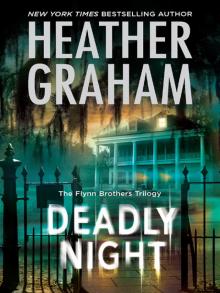 Deadly Night
Deadly Night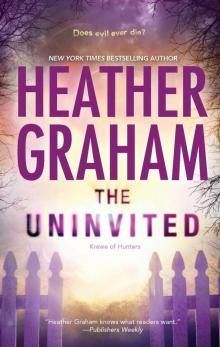 The Uninvited
The Uninvited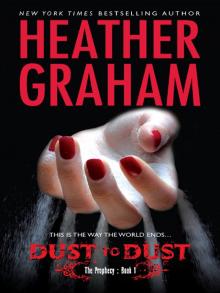 Dust to Dust
Dust to Dust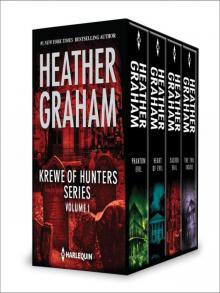 Heart of Evil
Heart of Evil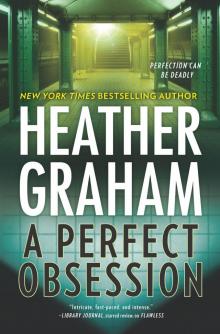 A Perfect Obsession
A Perfect Obsession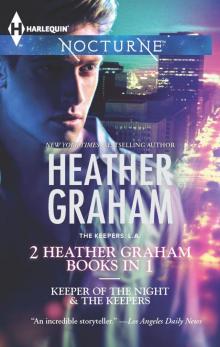 The Keepers
The Keepers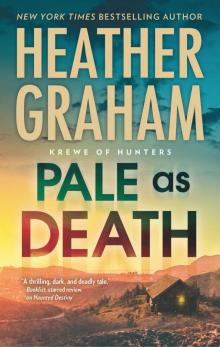 Pale as Death
Pale as Death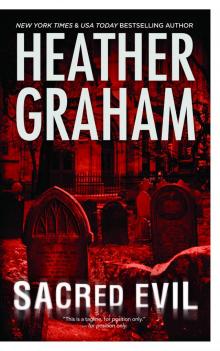 Phantom Evil
Phantom Evil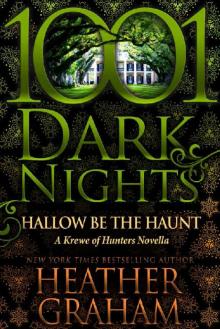 Hallow Be the Haunt
Hallow Be the Haunt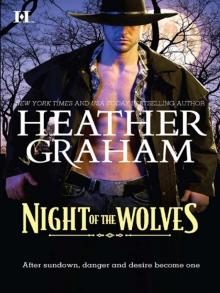 Night of the Wolves
Night of the Wolves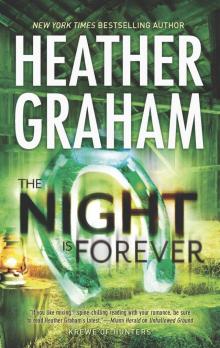 The Night Is Forever
The Night Is Forever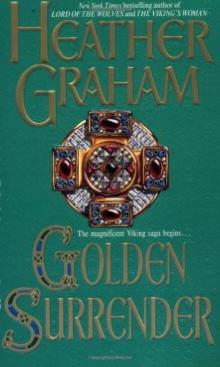 Golden Surrender
Golden Surrender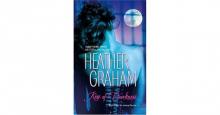 Kiss of Darkness
Kiss of Darkness Beneath a Blood Red Moon
Beneath a Blood Red Moon A Dangerous Game
A Dangerous Game Ghost Shadow
Ghost Shadow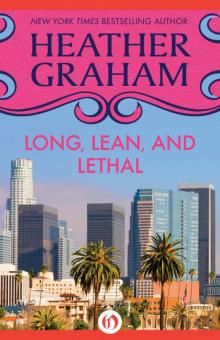 Long, Lean, and Lethal
Long, Lean, and Lethal Fade to Black
Fade to Black The Rising
The Rising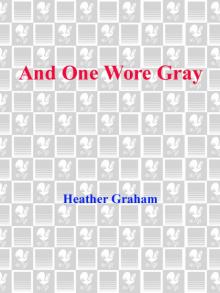 And One Wore Gray
And One Wore Gray Rebel
Rebel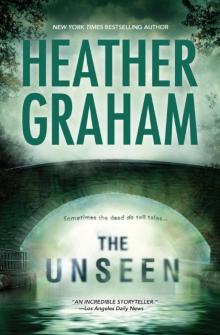 The Unseen
The Unseen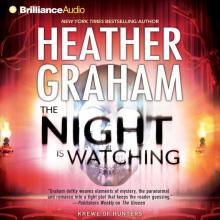 The Night Is Watching
The Night Is Watching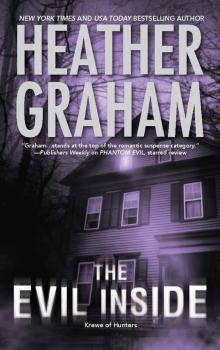 The Evil Inside
The Evil Inside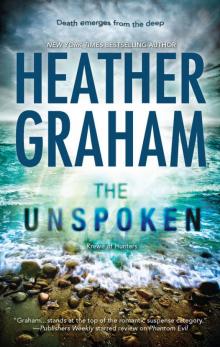 The Unspoken
The Unspoken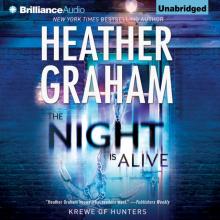 The Night Is Alive
The Night Is Alive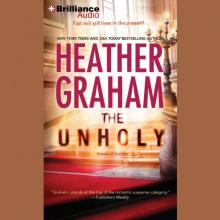 The Unholy
The Unholy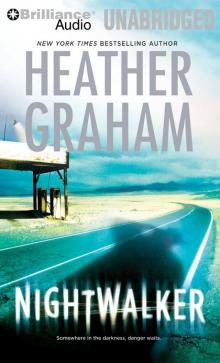 Nightwalker
Nightwalker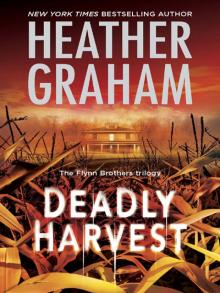 Deadly Harvest
Deadly Harvest An Angel for Christmas
An Angel for Christmas A Pirate's Pleasure
A Pirate's Pleasure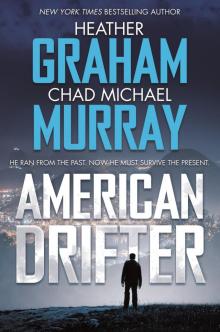 American Drifter
American Drifter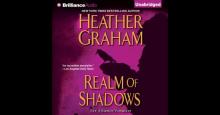 Realm of Shadows
Realm of Shadows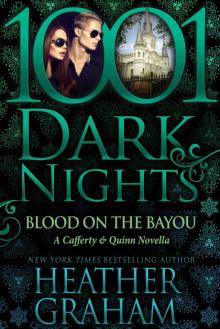 Blood on the Bayou
Blood on the Bayou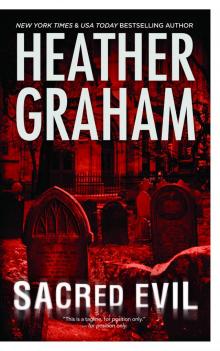 Sacred Evil
Sacred Evil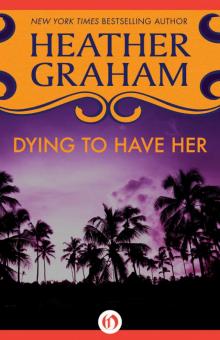 Dying to Have Her
Dying to Have Her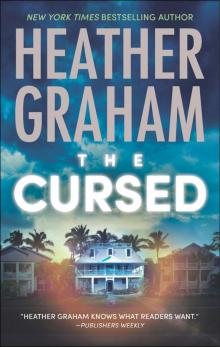 The Cursed
The Cursed Captive
Captive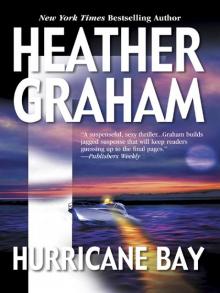 Hurricane Bay
Hurricane Bay Drop Dead Gorgeous
Drop Dead Gorgeous Ghost Memories
Ghost Memories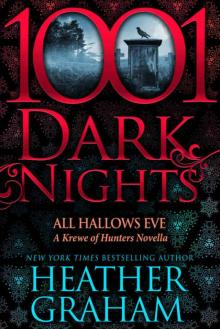 All Hallows Eve
All Hallows Eve Dying Breath
Dying Breath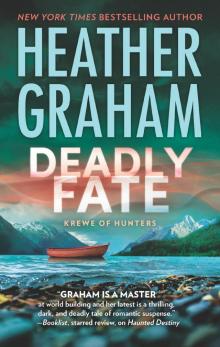 Deadly Fate
Deadly Fate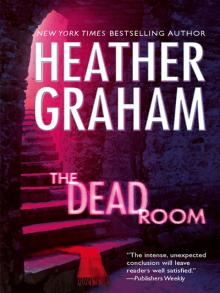 The Dead Room
The Dead Room Lord of the Wolves
Lord of the Wolves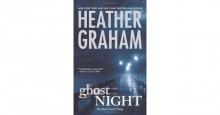 Ghost Night
Ghost Night Ghost Walk
Ghost Walk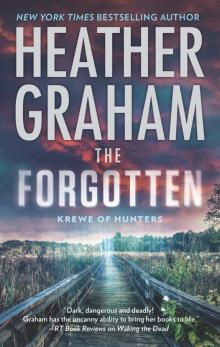 The Forgotten
The Forgotten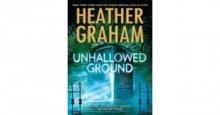 Unhallowed Ground
Unhallowed Ground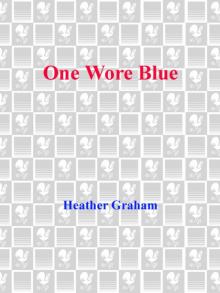 One Wore Blue
One Wore Blue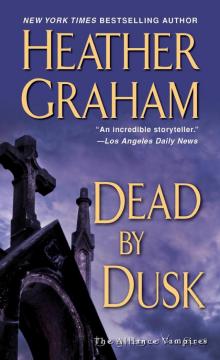 Dead By Dusk
Dead By Dusk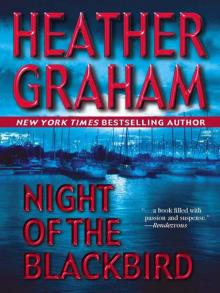 Night of the Blackbird
Night of the Blackbird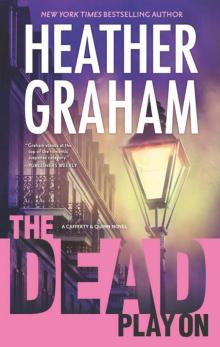 The Dead Play On
The Dead Play On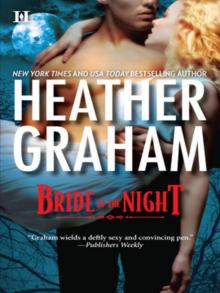 Bride of the Night
Bride of the Night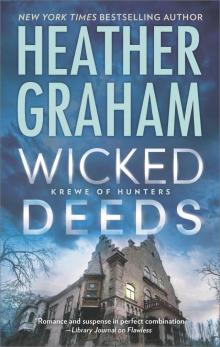 Wicked Deeds
Wicked Deeds The Forbidden
The Forbidden Triumph
Triumph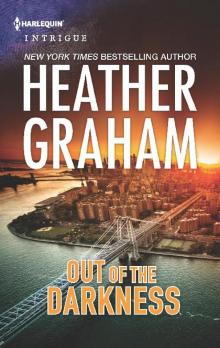 Out of the Darkness
Out of the Darkness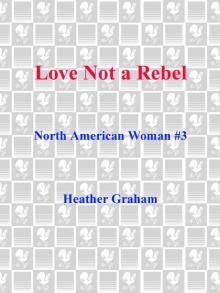 Love Not a Rebel
Love Not a Rebel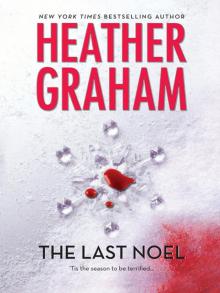 The Last Noel
The Last Noel Tall, Dark, and Deadly
Tall, Dark, and Deadly The Death Dealer
The Death Dealer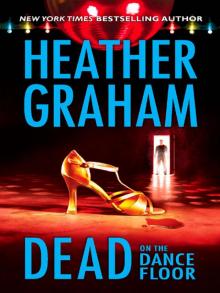 Dead on the Dance Floor
Dead on the Dance Floor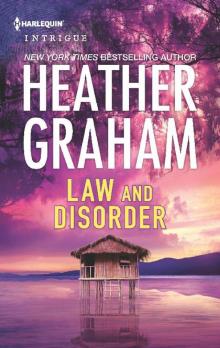 Law and Disorder
Law and Disorder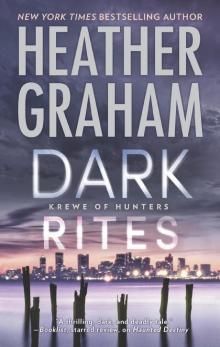 Dark Rites
Dark Rites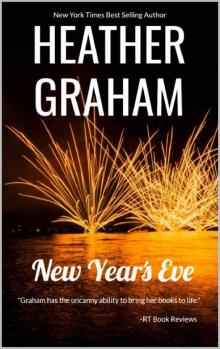 New Year's Eve
New Year's Eve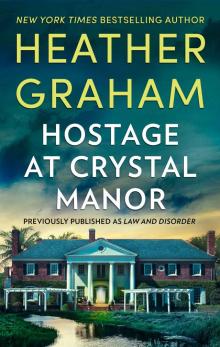 Hostage At Crystal Manor
Hostage At Crystal Manor And One Rode West
And One Rode West Home in Time for Christmas
Home in Time for Christmas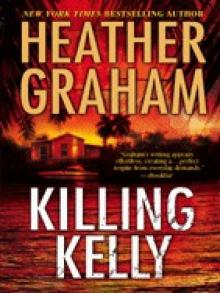 Killing Kelly
Killing Kelly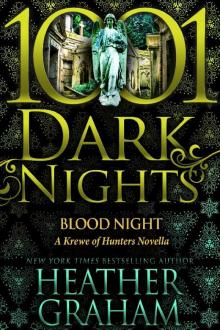 Blood Night
Blood Night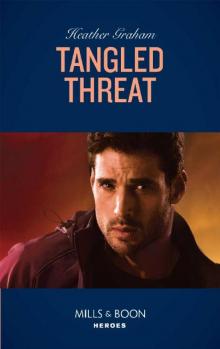 Tangled Threat (Mills & Boon Heroes)
Tangled Threat (Mills & Boon Heroes)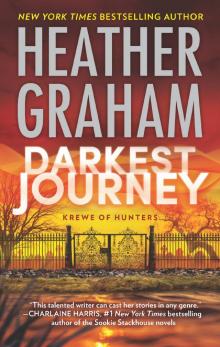 Darkest Journey
Darkest Journey Glory
Glory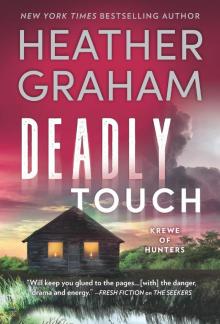 Deadly Touch
Deadly Touch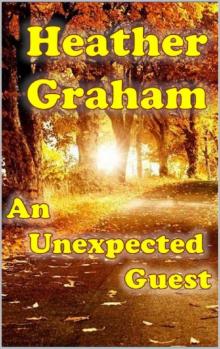 An Unexpected Guest
An Unexpected Guest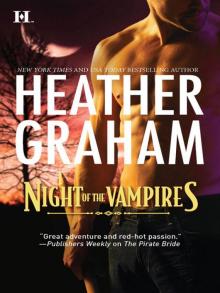 Night of the Vampires
Night of the Vampires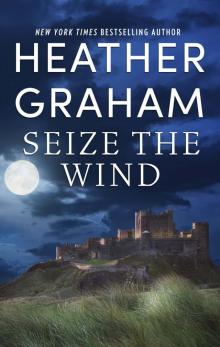 Seize the Wind
Seize the Wind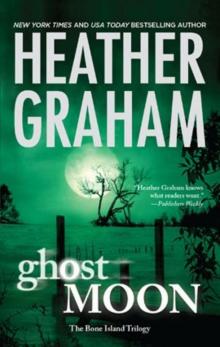 Ghost Moon
Ghost Moon The Vision
The Vision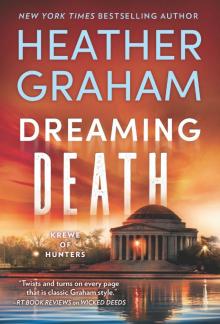 Dreaming Death
Dreaming Death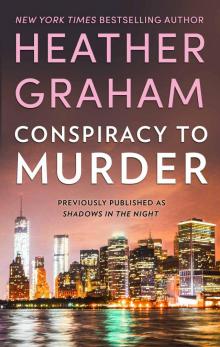 Conspiracy to Murder
Conspiracy to Murder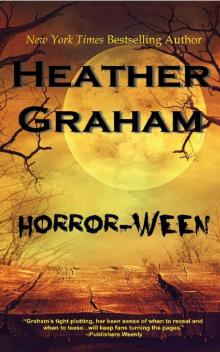 Horror-Ween (Krewe of Hunters)
Horror-Ween (Krewe of Hunters)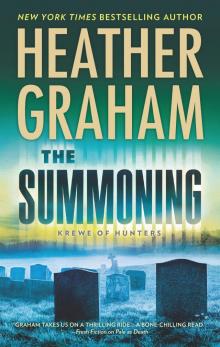 The Summoning
The Summoning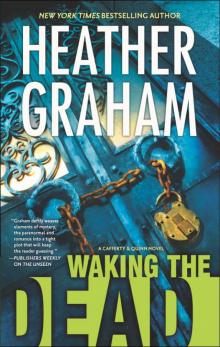 Waking the Dead
Waking the Dead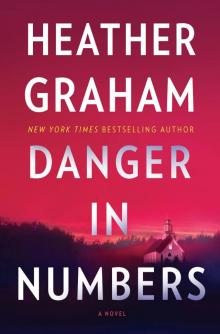 Danger in Numbers
Danger in Numbers The Hidden
The Hidden Sweet Savage Eden
Sweet Savage Eden Tangled Threat ; Suspicious
Tangled Threat ; Suspicious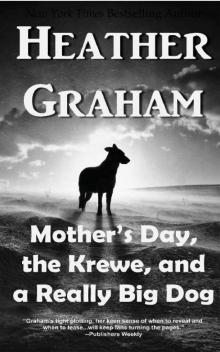 Mother's Day, the Krewe, and a Really Big Dog
Mother's Day, the Krewe, and a Really Big Dog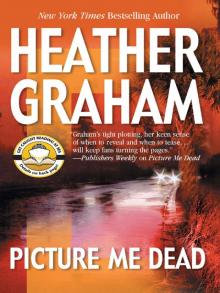 Picture Me Dead
Picture Me Dead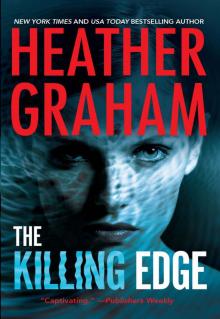 The Killing Edge
The Killing Edge St. Patrick's Day
St. Patrick's Day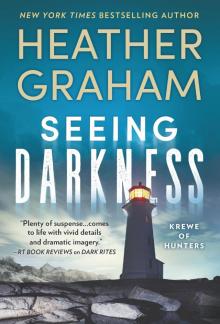 Seeing Darkness
Seeing Darkness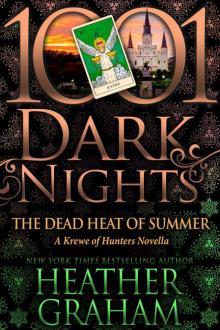 The Dead Heat of Summer: A Krewe of Hunters Novella
The Dead Heat of Summer: A Krewe of Hunters Novella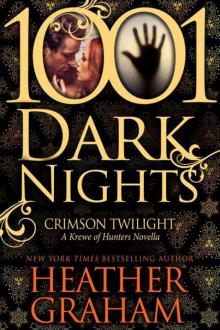 Crimson Twilight
Crimson Twilight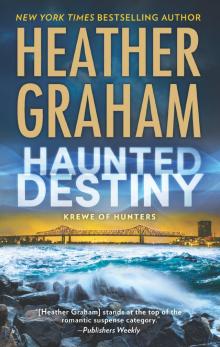 Haunted Destiny
Haunted Destiny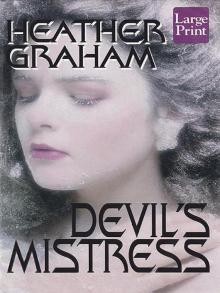 Devil's Mistress
Devil's Mistress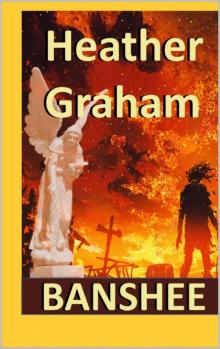 Banshee
Banshee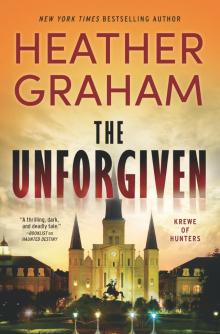 The Unforgiven
The Unforgiven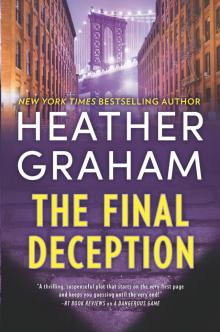 The Final Deception
The Final Deception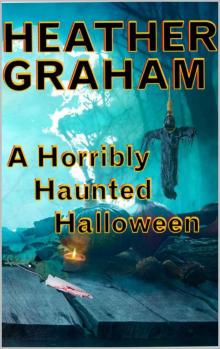 A Horribly Haunted Halloween
A Horribly Haunted Halloween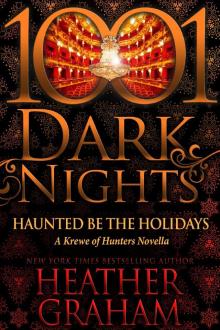 Haunted Be the Holidays
Haunted Be the Holidays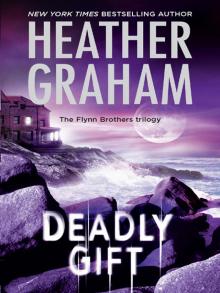 Deadly Gift
Deadly Gift Easter, the Krewe and Another Large White Rabbit
Easter, the Krewe and Another Large White Rabbit Haunted
Haunted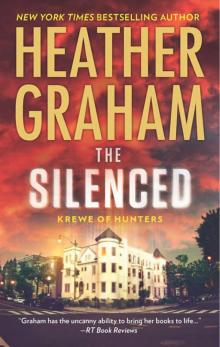 The Silenced
The Silenced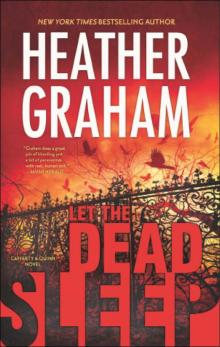 Let the Dead Sleep
Let the Dead Sleep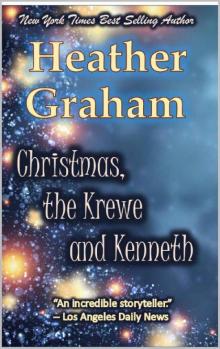 Christmas, the Krewe, and Kenneth
Christmas, the Krewe, and Kenneth Big Easy Evil
Big Easy Evil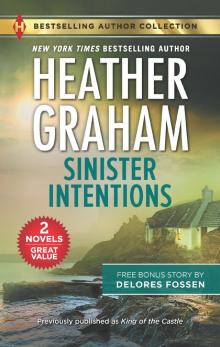 Sinister Intentions & Confiscated Conception
Sinister Intentions & Confiscated Conception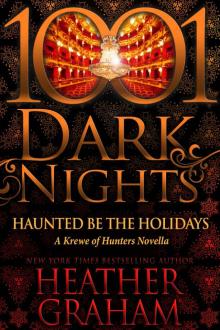 Haunted Be the Holidays: A Krewe of Hunters Novella
Haunted Be the Holidays: A Krewe of Hunters Novella Blood Red
Blood Red A Perilous Eden
A Perilous Eden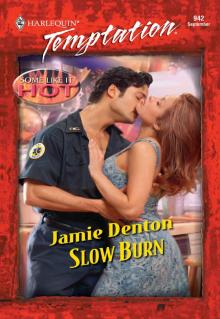 Slow Burn
Slow Burn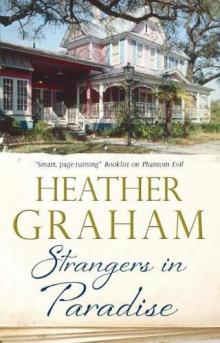 Strangers In Paradise
Strangers In Paradise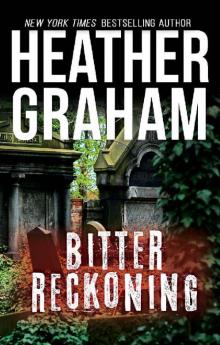 Bitter Reckoning
Bitter Reckoning Krewe of Hunters, Volume 1: Phantom Evil ; Heart of Evil ; Sacred Evil ; The Evil Inside
Krewe of Hunters, Volume 1: Phantom Evil ; Heart of Evil ; Sacred Evil ; The Evil Inside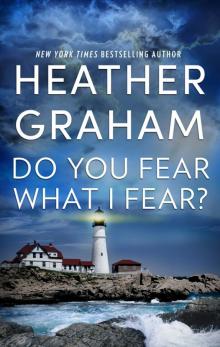 Do You Fear What I Fear?
Do You Fear What I Fear?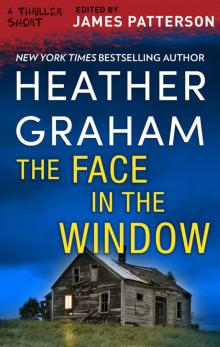 The Face in the Window
The Face in the Window Krewe of Hunters, Volume 3: The Night Is WatchingThe Night Is AliveThe Night Is Forever
Krewe of Hunters, Volume 3: The Night Is WatchingThe Night Is AliveThe Night Is Forever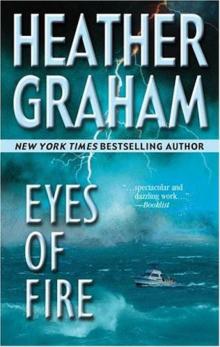 Eyes of Fire
Eyes of Fire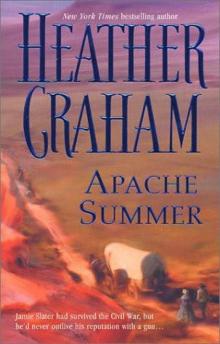 Apache Summer sb-3
Apache Summer sb-3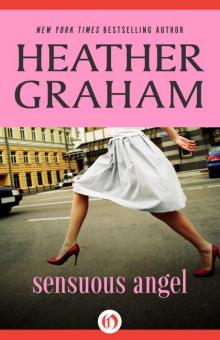 Sensuous Angel
Sensuous Angel In the Dark
In the Dark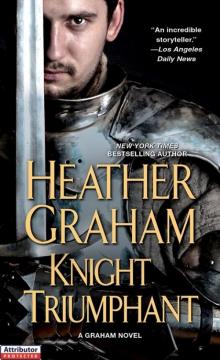 Knight Triumphant
Knight Triumphant Hours to Cherish
Hours to Cherish Tender Deception
Tender Deception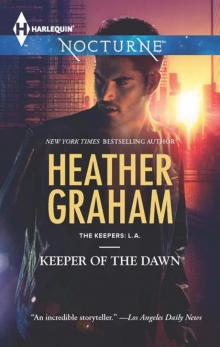 Keeper of the Dawn tkl-4
Keeper of the Dawn tkl-4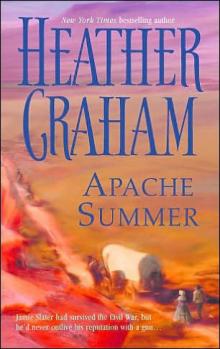 Apache Summer
Apache Summer Between Roc and a Hard Place
Between Roc and a Hard Place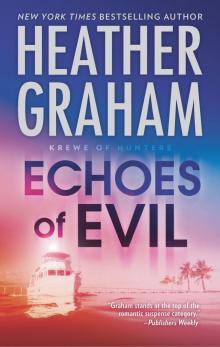 Echoes of Evil
Echoes of Evil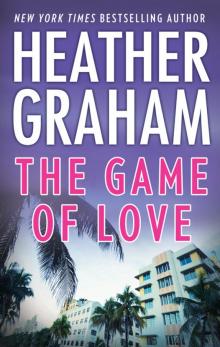 The Game of Love
The Game of Love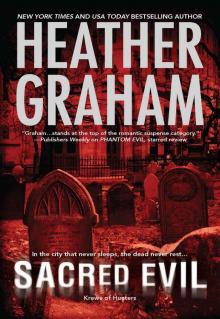 Sacred Evil (Krewe of Hunters)
Sacred Evil (Krewe of Hunters)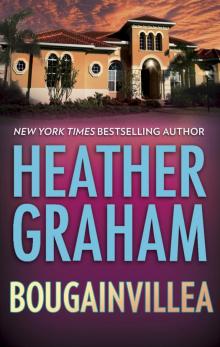 Bougainvillea
Bougainvillea Tender Taming
Tender Taming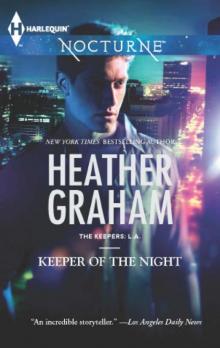 Keeper of the Night (The Keepers: L.A.)
Keeper of the Night (The Keepers: L.A.)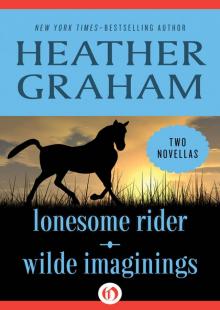 Lonesome Rider and Wilde Imaginings
Lonesome Rider and Wilde Imaginings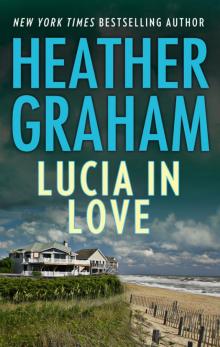 Lucia in Love
Lucia in Love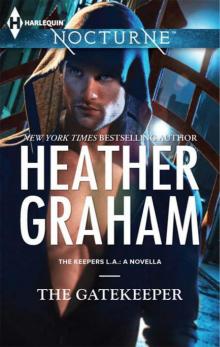 The Gatekeeper
The Gatekeeper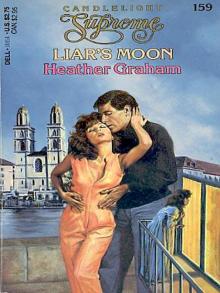 Liar's Moon
Liar's Moon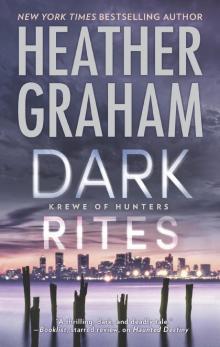 Dark Rites--A Paranormal Romance Novel
Dark Rites--A Paranormal Romance Novel A Season for Love
A Season for Love Krewe of Hunters, Volume 6: Haunted Destiny ; Deadly Fate ; Darkest Journey
Krewe of Hunters, Volume 6: Haunted Destiny ; Deadly Fate ; Darkest Journey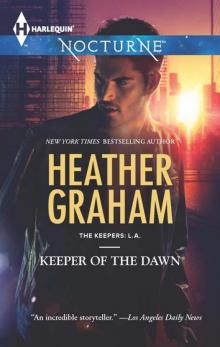 Keeper of the Dawn (The Keepers: L.A.)
Keeper of the Dawn (The Keepers: L.A.)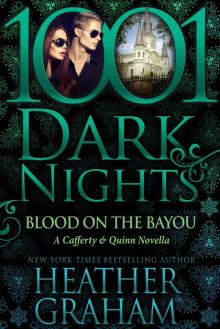 Blood on the Bayou: A Cafferty & Quinn Novella
Blood on the Bayou: A Cafferty & Quinn Novella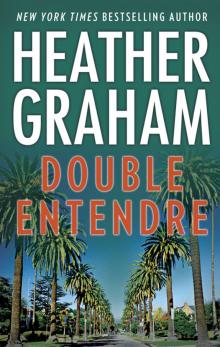 Double Entendre
Double Entendre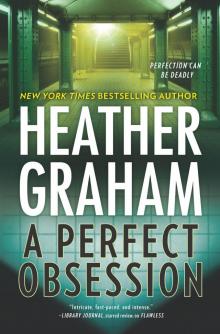 A Perfect Obsession--A Novel of Romantic Suspense
A Perfect Obsession--A Novel of Romantic Suspense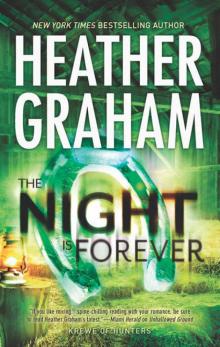 The Night Is Forever koh-11
The Night Is Forever koh-11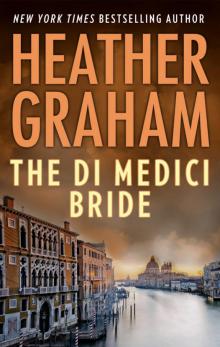 The Di Medici Bride
The Di Medici Bride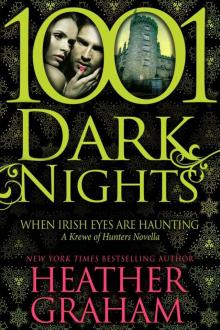 When Irish Eyes Are Haunting: A Krewe of Hunters Novella
When Irish Eyes Are Haunting: A Krewe of Hunters Novella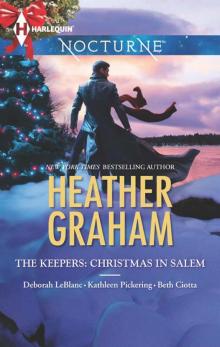 The Keepers: Christmas in Salem: Do You Fear What I Fear?The Fright Before ChristmasUnholy NightStalking in a Winter Wonderland (Harlequin Nocturne)
The Keepers: Christmas in Salem: Do You Fear What I Fear?The Fright Before ChristmasUnholy NightStalking in a Winter Wonderland (Harlequin Nocturne)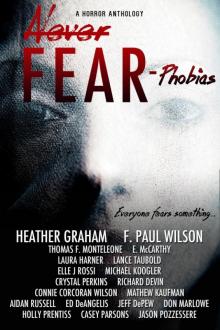 Never Fear
Never Fear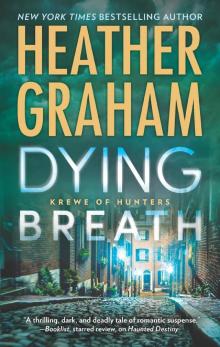 Dying Breath--A Heart-Stopping Novel of Paranormal Romantic Suspense
Dying Breath--A Heart-Stopping Novel of Paranormal Romantic Suspense If Looks Could Kill
If Looks Could Kill This Rough Magic
This Rough Magic Heather Graham's Christmas Treasures
Heather Graham's Christmas Treasures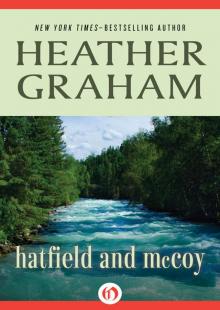 Hatfield and McCoy
Hatfield and McCoy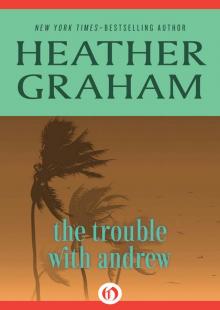 The Trouble with Andrew
The Trouble with Andrew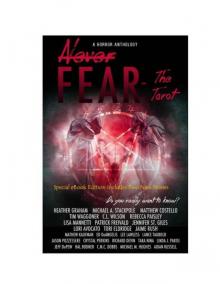 Never Fear - The Tarot: Do You Really Want To Know?
Never Fear - The Tarot: Do You Really Want To Know?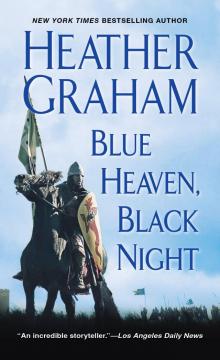 Blue Heaven, Black Night
Blue Heaven, Black Night Forbidden Fire
Forbidden Fire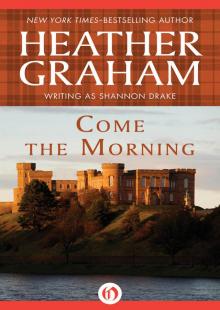 Come the Morning
Come the Morning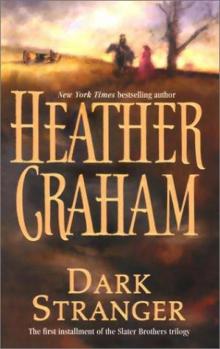 Dark Stranger sb-4
Dark Stranger sb-4 Lie Down in Roses
Lie Down in Roses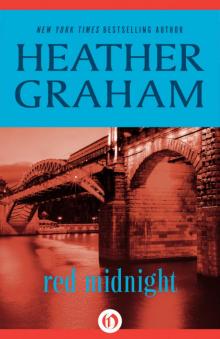 Red Midnight
Red Midnight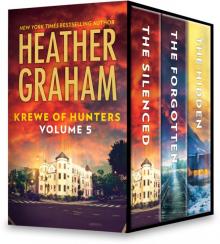 Krewe of Hunters Series, Volume 5
Krewe of Hunters Series, Volume 5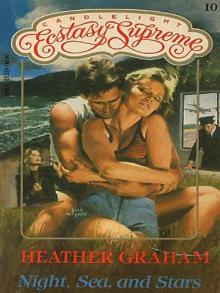 Night, Sea, And Stars
Night, Sea, And Stars Snowfire
Snowfire Quiet Walks the Tiger
Quiet Walks the Tiger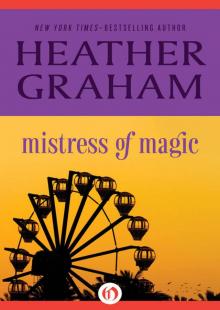 Mistress of Magic
Mistress of Magic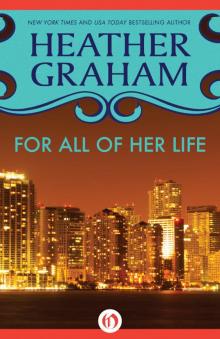 For All of Her Life
For All of Her Life Runaway
Runaway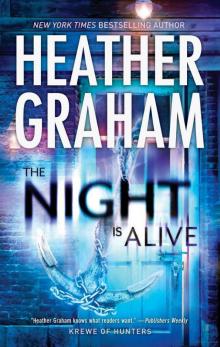 The Night Is Alive koh-10
The Night Is Alive koh-10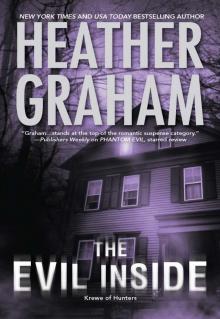 The Evil Inside (Krewe of Hunters)
The Evil Inside (Krewe of Hunters)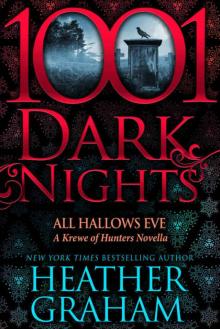 All Hallows Eve: A Krewe of Hunters Novella (1001 Dark Nights)
All Hallows Eve: A Krewe of Hunters Novella (1001 Dark Nights) Tomorrow the Glory
Tomorrow the Glory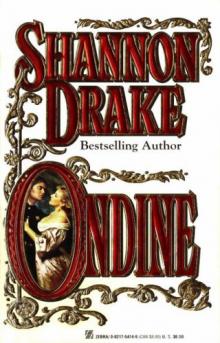 Ondine
Ondine Angel of Mercy & Standoff at Mustang Ridge
Angel of Mercy & Standoff at Mustang Ridge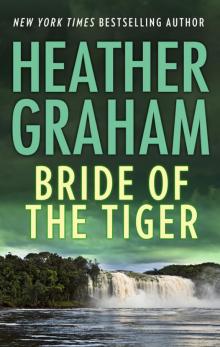 Bride of the Tiger
Bride of the Tiger When Next We Love
When Next We Love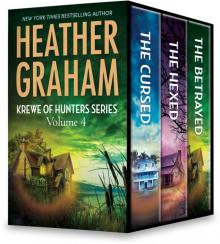 Heather Graham Krewe of Hunters Series, Volume 4
Heather Graham Krewe of Hunters Series, Volume 4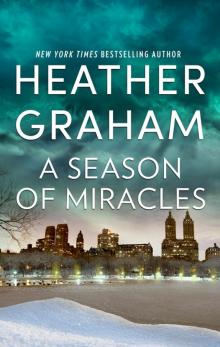 A Season of Miracles
A Season of Miracles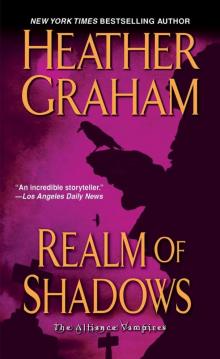 Realm of Shadows (Vampire Alliance)
Realm of Shadows (Vampire Alliance)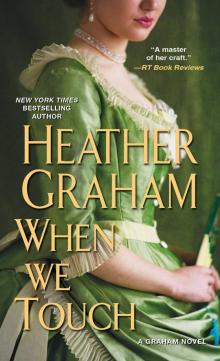 When We Touch
When We Touch Serena's Magic
Serena's Magic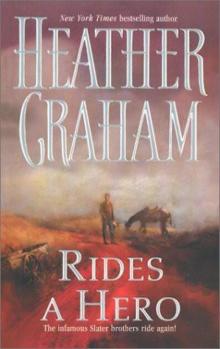 Rides a Hero sb-2
Rides a Hero sb-2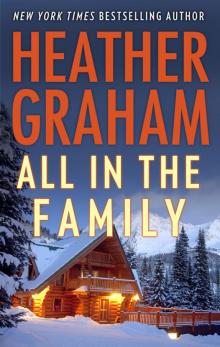 All in the Family
All in the Family Handful of Dreams
Handful of Dreams A Stranger in the Hamptons
A Stranger in the Hamptons Krewe of Hunters, Volume 2: The Unseen ; The Unholy ; The Unspoken ; The Uninvited
Krewe of Hunters, Volume 2: The Unseen ; The Unholy ; The Unspoken ; The Uninvited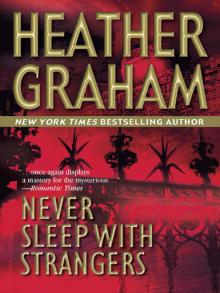 Never Sleep With Strangers
Never Sleep With Strangers Eden's Spell
Eden's Spell A Magical Christmas
A Magical Christmas Forever My Love
Forever My Love King of the Castle
King of the Castle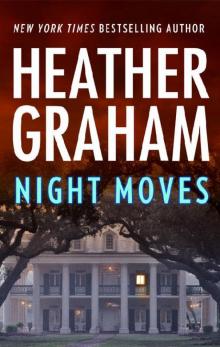 Night Moves (60th Anniversary)
Night Moves (60th Anniversary) The Island
The Island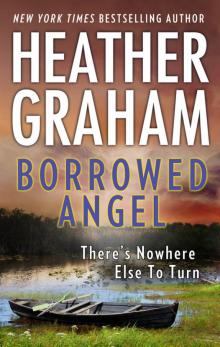 Borrowed Angel
Borrowed Angel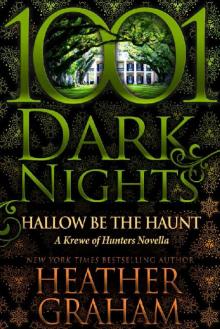 Hallow Be the Haunt: A Krewe of Hunters Novella
Hallow Be the Haunt: A Krewe of Hunters Novella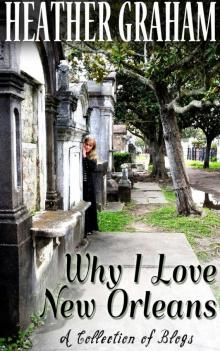 Why I Love New Orleans
Why I Love New Orleans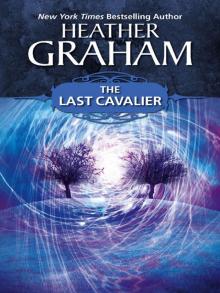 The Last Cavalier
The Last Cavalier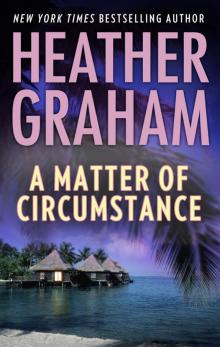 A Matter of Circumstance
A Matter of Circumstance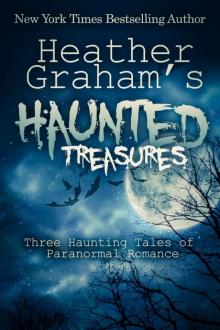 Heather Graham's Haunted Treasures
Heather Graham's Haunted Treasures Tempestuous Eden
Tempestuous Eden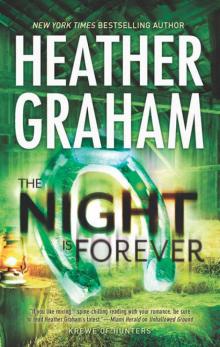 Krewe 11 - The Night Is Forever
Krewe 11 - The Night Is Forever